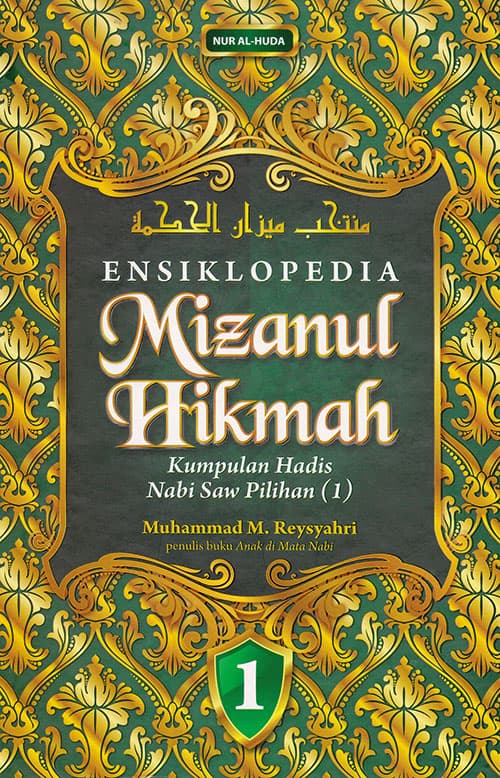Al-Ijarah (Pekerjaan, Upah-mengupah atau Sewa-menyewa) – Mizanul Hikmah


BAB 2
۲ – الْإِجَارَةُ
۳ – الْإِجَارَةُ وَ الْمَعِيْشَةُ
(أَهُمْ يَقْسِمُوْنَ رَحْمَةَ رَبِّكَ نَحْنُ قَسَمْنَا بَيْنَهُمْ مَعِيْشَتَهُمْ فِي الْحَيَاةِ الدُّنْيَا وَ رَفَعْنَا بَعْضَهُمْ فَوْقَ بَعْضٍ دَرَجَاتٍ لِيَتَّخِذَ بَعْضُهُمْ بَعْضًا سُخْرِيًّا وَ رَحْمَةُ رَبِّكَ خَيْرٌ مِمَّا يَجْمَعُوْنَ). (١1)
(قالَتْ إِحْدَاهُمَا يَا أَبَتِ اسْتَأْجِرْهُ إِنَّ خَيْرَ مَنِ اسْتَأْجَرْتَ الْقَوِيُّ الْأَمِيْنُ). (٢2)
“Is it they who dispense the mercy of your Lord? It is We who have dispensed among them their livelihood in the present life, and raised some of them above others in rank, so that some may take others into service, and your Lord’s mercy is better than what they amass.” (43)
“One of the two women said, ‘Father, hire him. Indeed the best you can hire is a powerful and trustworthy man.” (54)
Allah s.w.t. berfirman: “Apakah mereka yang membagi-bagi rahmat Tuhanmu? Kami telah menentukan antara mereka penghidupan mereka dalam kehidupan dunia, dan Kami telah meninggikan sebagian mereka atas sebagian yang lain beberapa derajat agar sebagian mereka dapat mempergunakan sebagian yang lain. Dan rahmat Tuhanmu lebih baik dari apa yang mereka kumpulkan.” (15)
“Salah seorang dari kedua wanita itu berkata: “Wahai bapakku, ambillah dia sebagai orang yang bekerja (pada kita) karena sesungguhnya orang yang paling baik yang yang kamu ambil untuk bekerja (pada kita) ialah orang yang kuat lagi dapat dipercaya.” (26)
۱۳.الْإِمَامُ عَلِيٌّ عليه السلام – فِيْ قَوْلِهِ تَعَالَى :(نَحْنُ قَسَمْنَا بَيْنَهُمْ مَعِيْشَتَهُمْ) – :أَخْبَرَنَا سُبْحَانَهُ أَنَّ الْإِجَارَةَ أَحَدُ مَعَايِشِ الْخَلْقِ، إِذَ خَالَفَ بِحِكْمَتِهِ بَيْنَ هِمَمِهِمْ وَ إِرَادَتِهِمْ وَ سَائِرِ حَالَاتِهِمْ، وَ جَعَلَ ذلِكَ قِوَامًا لِمَعَايِشِ الْخَلْقِ، وَ هُوَ الرَّجُلُ يَسْتَأْجِرُ الرَّجُلَ … وَ لَوْ كَانَ الرَّجُلُ مِنَّا يُضْطَرُّ إِلَى أَنْ يَكُوْنَ بَنَّاءً لِنَفْسِهِ أَوْ نَجَّارًا أَوْ صَانِعًا فِيْ شَيْءٍ مِنْ جَمِيْعِ أَنْوَاعِ الصَّنَائِعِ لِنَفْسِهِ … مَا اسْتَقَامَتْ أَحْوَالُ الْعَالَمِ بِتِلْكَ، وَ لَا اتَّسَعُوْا لَهُ، وَ لَعَجِزُوْا عَنْهُ، وَ لكِنَّهُ أَتْقَنَ تَدْبِيْرَهُ لِمُخَالَفَتِهِ بَيْنَ هِمَمِهِمْ، وَ كُلُّ مَا يُطْلَبُ مِمَّا تَنْصَرِفُ إِلَيْهِ هِمَّتُهُ مِمَّا يَقُوْمُ بِهِ بَعْضُهُمْ لِبَعْضٍ، وَ لِيَسْتَغْنِيَ بَعْضُهُم بِبَعْضٍ فِيْ أَبْوَابِ الْمَعَايِشِ الَّتِيْ بِهَا صَلَاحُ أَحْوَالِهِمْ. (۳7)
13. Imam Ali (AS) said about the verse: “It is We who have dispensed among them their livelihood”, ‘Allah, the Exalted, told us that employyment is one of the means of people’s livelihood. He, in His wisdom, diversified their aspirations, motivations, and other states. Thus, He made man’s employment of one another one of the means of people’s livelihood … If every one of us was forced to build for himself, make his own furniture, and produce everything himself… the world’s conditions would not be bearable and people would not be able to endure them, and would find them impossible. But He ensured its management by diversifying their aspirations so that everyone performs for others that which is compatible with his own capacity, in order for some of them to be served by others and for their conditions to be sound.’ (68)
٤ – كَرَاهَةُ إِجَارَةِ النَّفْسِ
۱٤.الكافي عَنْ عَمَّارِ السَّابَاطِيِّ :قُلْتُ لِأَبِيْ عَبْدِ اللهِ عليه السلام: الرَّجُلُ يَتَّجِرُ، فَإِنْ هُوَ آجَرَ نَفْسَهُ اُعْطِيَ مَا يُصِيْبُ فِيْ تِجَارَتِهِ، فَقَالَ: لَا يُؤَاجِرْ نَفْسَهُ، وَ لكِنْ يَسْتَرْزِقُ اللهَ عَزَّ وَ جَلَّ وَ يَتَّجِرُ، فَإِنَّهُ إِذَا آجَرَ نَفْسَهُ حَظَرَ عَلَى نَفْسِهِ الرِّزْقَ. (١10)
Abū ‘Abdillāh (Imām Shādiq) a.s. menjawab: “Janganlah dia mempekerjakan dirinya (untuk mendapatkan upah). Akan tetapi, hendaklah dia mencari rezeki Allah dan berdagang. Sebab, jika dia mempekerjakan dirinya (untuk mendapatkan upah), maka sesungguhnya dia telah mencegah dirinya untuk mendapatkan rezeki.” (112)
٥ – الدَّلَّالُ فِي الْإِجَارَةِ
۱٥.الكافي عَنْ مُحَمَّدِ بْنِ مُسْلِمٍ عَنْ أَحَدِهِمَا عليهما السلام :أَنَّهُ سُئِلَ عَنِ الرَّجُلِ يَتَقَبَّلُ بِالْعَمَلِ فَلَا يَعْمَلُ فِيْهِ وَ يَدْفَعُهُ إِلَى آخَرَ فَيْرْبَحُ فِيْهِ، قَالَ: لَا، إِلَّا أَنْ يَكُوْنَ قَدْ عَمِلَ فِيْهِ شَيْئًا. (٢13)
٦ – ظُلْمُ الْأَجِيْرِ
۱٦.رَسُوْلُ اللهِ صلى الله عليه و آله :مَنْ ظَلَمَ أَجِيْرًا أُجْرَهُ أَحْبَطَ اللهُ عَمَلَهُ وَ حَرَّمَ عَلَيْهِ رِيْحَ الْجَنَّةِ، وَ إِنَّ رِيْحَهَا لَتُوْجَدُ مِنْ مَسِيْرَةِ خَمْسِمِائَةِ عَامٍ. (٣16)
۱۷.عنه صلى الله عليه و آله :ظُلْمُ الْأَجِيْرِ أُجْرَهُ مِنَ الْكَبَائِرِ. (٤19)
۷ – إِعْلَامُ الْأُجْرَةِ وَ أَدَبُ إِعْطَائِهَا
۱۸.رَسُوْلُ اللهِ صلى الله عليه و آله :أُعْطُوا الْأَجِيْرَ أُجْرَهُ قَبْلَ أَنْ يَجِفَّ عَرَقُهُ، وَ أُعْلِمْهُ أُجْرَهُ وَ هُوَ فِيْ عَمَلِهِ. (٥22)
۱۹.الإمامُ عليٌّ عليه السلام: نَهَى [ رَسُوْلُ اللهِ صلى الله عليه و آله] أَنْ يُسْتَعْمَلَ أَجِيْرٌ حَتَّى يُعْلِمَ مَا اُجْرَتُهُ. (١25)